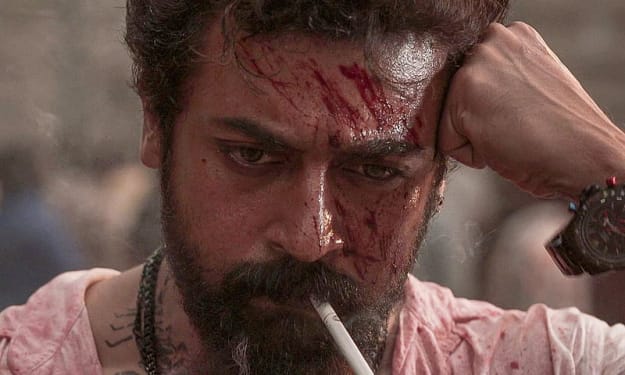
The year was 30 BC and the Roman Empire was at the height of its power. In Egypt, the last queen of the Ptolemaic dynasty, Cleopatra, had just died under mysterious circumstances. Rumors of foul play were rampant and the citizens of Egypt were demanding answers.
At the center of the investigation was Octavian, the heir of Julius Caesar and the man who would soon become the first emperor of Rome. Many believed that Octavian had a hand in Cleopatra's death, as she had been a thorn in his side for years.
But as the investigation unfolded, it became clear that there were other players involved. Cleopatra's lover, Mark Antony, had also died under suspicious circumstances, and it seemed that the two deaths were linked.
The first person to be questioned was Cleopatra's trusted advisor, Apollodorus. He had been with her until the very end and claimed that Cleopatra had taken her own life with the help of a poisonous snake. But many were skeptical of his story, as it seemed too convenient.
Next, Octavian himself was questioned. He denied any involvement in Cleopatra's death and claimed that he had no motive to kill her. But the citizens of Egypt were not convinced and demanded that he be held accountable for his actions.
As the investigation continued, a new suspect emerged - Cleopatra's own sister, Arsinoe. She had been exiled by Cleopatra years earlier and had always harboured a grudge against her sister. It was rumoured that she had been plotting revenge for years and that she may have had a hand in Cleopatra's death.
The evidence against Arsinoe was circumstantial at best, but it was enough to convince many that she was the true culprit. However, there were others who believed that the real killer was still at large.
In the end, the investigation was inconclusive. No one could say for certain who had killed Cleopatra, and the citizens of Egypt were left to mourn their fallen queen. But the rumours and speculation continued, and the mystery of Cleopatra's death would go down in history as one of the greatest unsolved crimes of all time.
Despite the inconclusive results of the investigation, there were those who continued to search for the truth. One of these individuals was a young historian named Marcus, who had been a close friend of Cleopatra's and was determined to find out what had really happened to her.
Marcus began by conducting interviews with everyone who had been present in Cleopatra's palace on the day of her death. He spoke with Apollodorus, Octavian, and even Arsinoe, but none of their stories matched up. It seemed that everyone had something to hide.
As he dug deeper, Marcus uncovered a web of lies and deceit that had been woven around Cleopatra's death. He discovered that Apollodorus had been paid off by Octavian to lie about the snake bite, and that Arsinoe had been working with a group of assassins to kill Cleopatra for years.
But the most shocking revelation came when Marcus found a hidden diary that belonged to Cleopatra herself. In it, she detailed a plot by Octavian to have her killed in order to consolidate his power in Egypt. She also revealed that she had been working with Mark Antony to stage a fake death in order to escape to a secret location and start a new life together.
Marcus realized that Cleopatra's death had been a carefully orchestrated plan by Octavian and his allies. He knew that he had to act quickly to expose the truth before it was too late.
Marcus shared his findings with the citizens of Egypt, and soon the people were in an uproar. They demanded that Octavian be held accountable for his crimes and that justice be served for Cleopatra.
In the end, Octavian was forced to flee Egypt and Marcus was hailed as a hero. Cleopatra's legacy was restored, and her name became synonymous with bravery and defiance in the face of oppression.
As for Marcus, he went on to become a renowned historian and writer, documenting the events of Cleopatra's life and death in great detail. His work ensured that the truth about Cleopatra's death would never be forgotten, and that her memory would live on for generations to come.
Was this response better or worse?
Better
Worse
Same
About the Creator
Karun
🌿✨ Karun, a poet weaving emotions into verses, embarked on the journey of words to unearth the beauty of feelings. In the delicate dance of ink and emotion, my poetry delves into the nexus of the human heart and the natural world.✍️
Enjoyed the story? Support the Creator.
Subscribe for free to receive all their stories in your feed. You could also pledge your support or give them a one-off tip, letting them know you appreciate their work.






Comments
There are no comments for this story
Be the first to respond and start the conversation.